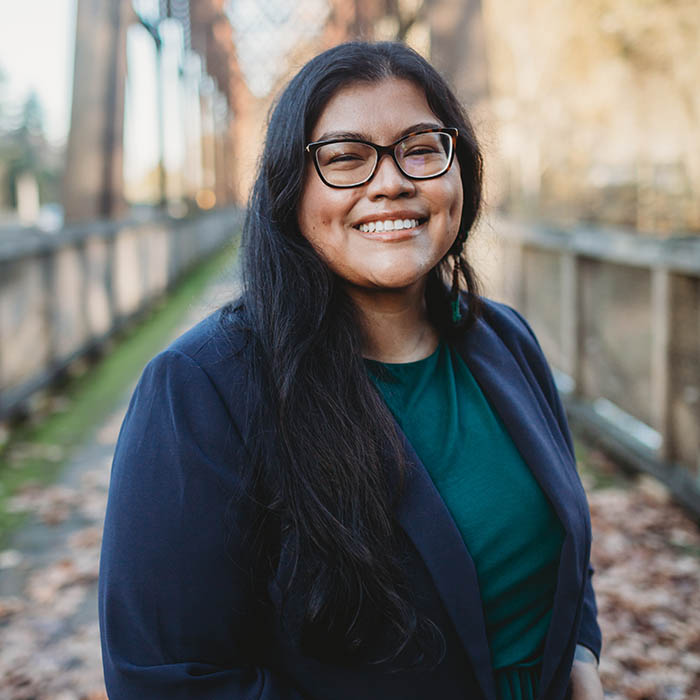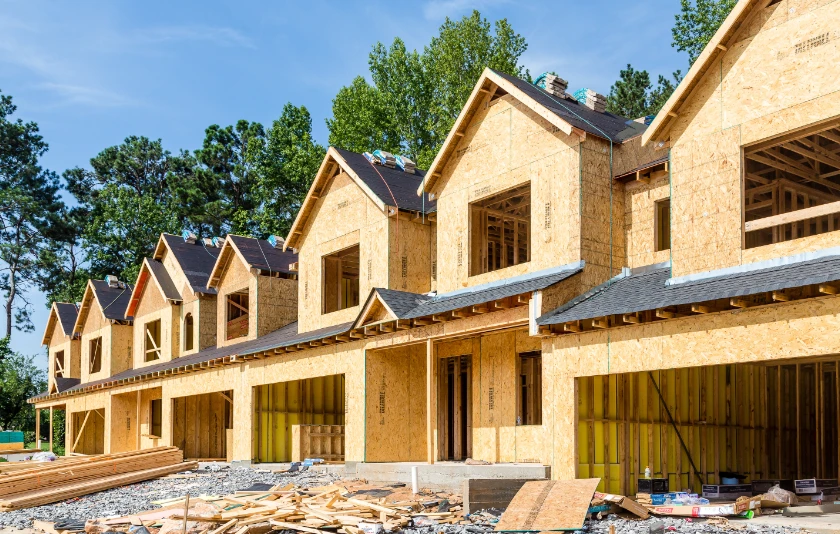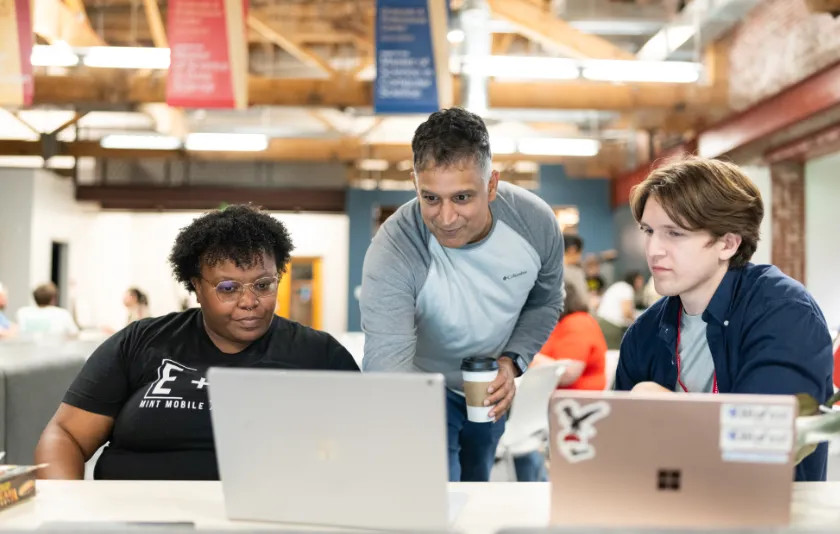An assistant professor’s background in Chicanx and Latinx culture and literature is breathing new life into English classes at Willamette University.

Teresa Hernández’s scholarly and personal background and deep understanding of the issues concerning border communities — including immigrant policy, the racialization of Latinx people in the U.S., questions of cultural and personal identity — is offering students a rich foundation from which to learn about Multi-Ethnic futurity and Latinx literature this semester.
A former resident of Pharr, Texas, Hernández comes from a family of migrant farmworkers and first-generation laborers. Her academic and professional career was primarily spent in and around the city, teaching classes for English Language Learners, first generation and high school English AP students, as well as at Hispanic-Serving Institutions.
Early in her working life, she was employed at a literacy center, where she learned that 80 percent of Pharr citizens didn’t have a high school diploma. This stark fact moved her to consider a career involving literacy beyond reading and writing, one that defined literacy as access, power, and community responsibility.
By 2017, she had earned two degrees — a BA in English and Mexican American Studies at the University of Texas Pan American and an MA in Literatures and Cultural Studies at the University of Texas Rio Grande Valley — then completed her PhD in English this past year at the University of Oregon, where she focused on Chicanx and Latinx culture.
Aligned with the values of Willamette students, who are driven by their civic duty, and drawn to the university’s connection with college access program Willamette Academy, Hernández viewed the opportunity to work here as one of partnership and community-building among many groups on campus.
“I see Willamette as a university that has a vested interest in not just diversifying faculty, but also making sure we’re creating sustainable practices for first-generation, students of color and other historically underrepresented students on campus,” she said.
Hernández has several ideas for student and community-led research beyond her classes that she’s eager to start creating, as well as events.
One event is already in progress: on Oct. 25, poet and activist Lorna Dee Cervantes, considered one of the most influential and formative voices in Chicanx feminist literature, is giving a public reading at 7 p.m. at Eaton 209. Hernández planned the event to run on the transition between Hispanic Heritage Month and Native American Heritage Month, specifically to recognize Cervantes’ designations of identity.
“I feel very fortunate we can bring her to campus,” Hernández said. “She represents all the things we want to foster in our campus community and expose students to.”


